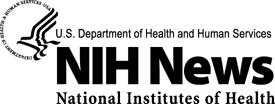NIH Announces Final Ethics Rules
Ban on Outside Consulting with Industry Remains in Force The
National Institutes of Health (NIH) announced today final regulations
regarding reporting of certain financial interests, stock divestiture,
outside activities, and awards. The regulations were developed
by the Department of Health and Human Services (HHS), in close
collaboration with NIH, with the concurrence of the Office of Government
Ethics (OGE), the Federal agency that prescribes executive branch-wide
ethics standards. The announcement came following a careful review
of all comments about the interim ethics regulation submitted by
NIH staff, the public, and scientific organizations.
Elias A. Zerhouni, M.D., NIH Director, said, "We have a balanced
set of conflict of interest rules that protect the integrity of
NIH and its ability to provide the American public with an unbiased
and trusted source of scientific and health information, while
preserving our ability to recruit and retain world class scientists
and staff.”
Three principles guided the crafting of the rules:
- The public must be assured that research decisions made at NIH
are based on scientific evidence and not by inappropriate influences.
- Senior management and people who play an important role in research
decisions must meet a higher standard of disclosure and divestiture
than people who are not decision-makers.
- To advance the science and stay on the cutting edge of research,
NIH employees must be allowed interaction with professional associations,
participation in public health activities, and genuine teaching
opportunities.
“NIH is the Nation’s premier research institution
thanks to the high caliber of men and women who serve there,” said
HHS Secretary Mike Leavitt. “These rules will help NIH and
its employees maintain the highest ethical standards, while sustaining
their ability to conduct and support the best medical research
in the world.”
The major features of the final rules announced today are:
- The basic prohibition on outside consulting by NIH staff with
substantially affected organizations, such as pharmaceutical,
biotechnology or medical device manufacturing companies, health
care providers or insurers, and supported research institutions
remains unchanged.
- Divestiture of all holdings in substantially affected organizations
in excess of $15,000 per company will be required for all senior
NIH employees and their spouses and minor children. As defined
by the final regulations, these senior employees include the NIH
Director and Deputy Director; all direct reports to the NIH Director;
all Institute/Center (IC) Directors, Deputy Directors, Scientific
Directors, and Clinical Directors in each IC; extramural program
officials who report directly to an IC Director; and other employees
designated as such because they possess equivalent levels of decision-making
responsibility. All other employees may be required to divest if,
after review, a potential conflict resulting from their holdings
or those of their spouses and minor children would impede their
ability to do their government job.
- The receipt of monetary awards from outside sources will continue
to be contingent upon prior approval and be limited to awards
that have been determined through a pre-screening process to
be bona fide. The final regulations will bar senior employees
from receiving the cash component of pre-screened awards offered
by donors who have matters pending under their official responsibility.
- Employees who file either a public (SF 278) or a confidential
(OGE 450) financial disclosure report, and those non-filers who
serve as clinical investigators identified on an NIH clinical study,
are required to report their interests in substantially affected
organizations, as well as those of their spouse and minor children,
and to indicate the amount held in such investments.
- To facilitate academic and scientific interactions, the final
regulations will allow, subject to prior approval and review by
ethics officials, outside activities with professional or scientific
organizations, service on data and safety monitoring boards, Grand
Rounds lectures, and scientific grant review.
- The regulations maintain current provisions that permit NIH
scientists, to the extent allowed under existing government-wide
rules and with prior approval, to engage in compensated academic
outside activities such as teaching courses at universities, writing
general textbooks, performing scientific journal reviews or editing,
and providing general lectures to physicians and scientists as
part of a continuing professional education program. NIH scientists
can also engage in the practice of medicine and other health professions
with prior approval and in accordance with existing rules. Outside
activities that involve hobbies, sports, civic organizations or
interests unrelated to the NIH mission are permissible, generally
without prior approval.
As before, these regulations apply in addition to existing statutes
and the OGE government-wide and HHS Supplemental Standards of
Ethical Conduct. NIH leadership is developing procedures and
information systems to implement the final regulations and will
hold extensive training sessions with staff over the coming months.
For more information, please go to: http://www.nih.gov/about/ethics_COI.htm.
The National Institutes of Health (NIH) — The Nation's
Medical Research Agency — includes 27 Institutes
and Centers and is a component of the U. S. Department of Health
and Human Services. It is the primary Federal agency for conducting
and supporting basic, clinical, and translational medical research,
and investigates the causes, treatments, and cures for both common
and rare diseases. For more information about NIH and its programs,
visit www.nih.gov.
|

